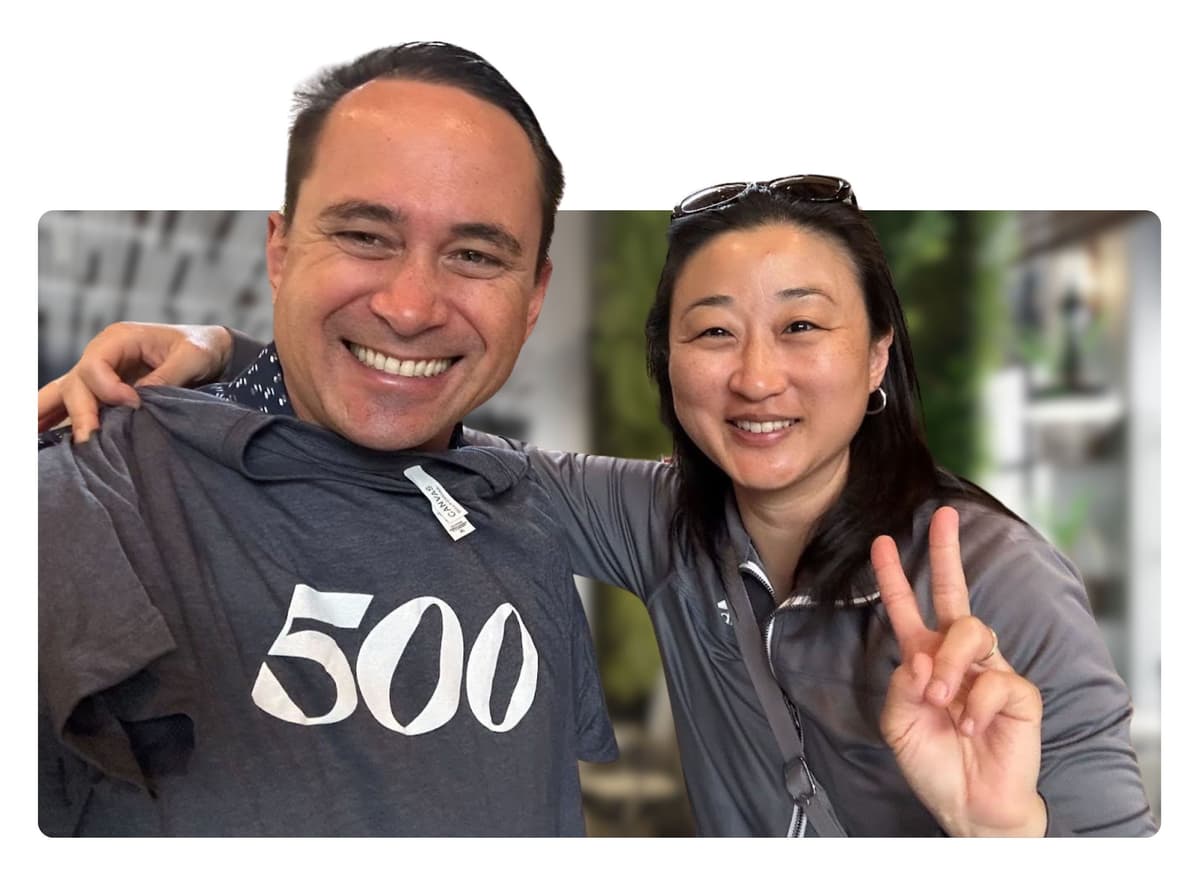2023.07.12

500 Global Team

David Ng and Liyana Sulaiman, founders of the Singapore-based retail startup Pollen, had found early traction helping brands offload their excess and unwanted inventory across Southeast Asia. But a major question for the duo remained — would their idea work in Japan? They believed this market could be key to their company’s long term success.
“We were trying to figure out what the opportunities were outside of our region [in Singapore],” Ng told 500 Global in a recent interview.
To do so, Ng and Sulaiman joined the Accelerate Aichi Landing Pad Program by 500 Global, an eight-week market access program designed for international growth stage startups who want to expand into Japan. Hosted in the country’s fourth most populated prefecture, Aichi, it began in 2021 and accepts north of 15 companies per cohort.
The team at Pollen said they enjoyed the hands-on approach of the Landing Pad Program, learning directly from mentors who taught them the operational nuances of doing business in Japan. From speaking with potential corporate customers and fundraising to localizing their product offerings, the program gave them confidence to expand into the country.
And while gaining a corporate client wasn’t a guarantee of the accelerator, Ng said the 500 Global team led the way in helping Pollen meet with potential clients. Pollen reported that it ultimately was able to strike a deal with a local tire company that had been searching for a new way to sell their extra inventory.

“We went and put ourselves out there... and overall, I think we got exactly what we were looking for.
David Ng
Co-founder of Pollen
“We felt like that was validation that yes, the problem exists in Japan,” Ng told us, saying he was especially excited to work with a tire company in Aichi, where Toyota was born. “We went and put ourselves out there, even when we didn’t speak the language, we prepared our materials beforehand and with the support of the 500 team, made our value proposition known to the tire company…and overall, I think we got exactly what we were looking for.”
Co-founder Li added: “I think meeting other entrepreneurs and exchanging ideas — even if they were at different stages of their entrepreneurial journey — just makes all the learning more real. Building support networks, exchanging resources, gaining context and connections — those have been very valuable, intangible takeaways from the program.”
Separately, Accelerate Aichi by 500 Global also offered an 8-week seed accelerator for 15 seed stage companies based in Japan. The program was designed to coach startups on growth best-practices and fundamentals while facilitating introductions from corporations to assist startups in expanding their customer base.
Taro Kato, whose company Blue Eyes created an online platform for Japanese event organizers, participated in last year’s Seed Program and said he learned a lot, especially how to conduct a Proof of Concept (POC) as a startup. This idea — which lets founders validate the feasibility of their business plan or technology — was something he wasn’t familiar with before the program.

“This led to another collaboration opportunity and resulted in ongoing relationships that continue to thrive today.
Taro Kato
Founder of Blue Eyes
“We didn’t know what it meant to collaborate with Handa City through Proof of Concept as a startup. Neither did Handa City. Thanks to 500 Global’s guidance and communication, the first POC implementation was successful. This led to another collaboration opportunity and resulted in ongoing relationships that continue to thrive today.” Kato said.
Handa City, located in the Aichi Prefecture is known for several local attractions and has been “organizing regular events with the objective of gathering data on station redevelopment and revitalizing the area,” Kato shared. Understanding the objective, Kato then proceeded to work on a POC with them, assisting in managing vendors and boosting sales for events.
Pollen and Blue Eyes are just two examples from the Landing Pad and Seed Bootcamp programs that have succeeded in meeting with corporations across the prefecture, learned how to reach product-market-fit, and ultimately, gained a foothold in the region.





